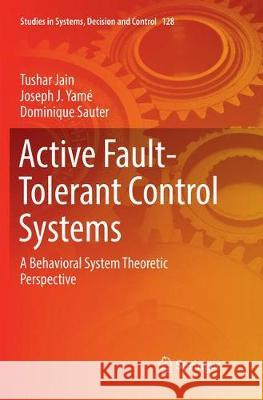Active Fault-Tolerant Control Systems: A Behavioral System Theoretic Perspective » książka
topmenu
Active Fault-Tolerant Control Systems: A Behavioral System Theoretic Perspective
ISBN-13: 9783319886640 / Angielski / Miękka / 2018 / 152 str.
Kategorie:
Kategorie BISAC:
Wydawca:
Springer
Seria wydawnicza:
Język:
Angielski
ISBN-13:
9783319886640
Rok wydania:
2018
Wydanie:
Softcover Repri
Ilość stron:
152
Oprawa:
Miękka
Wolumenów:
01











